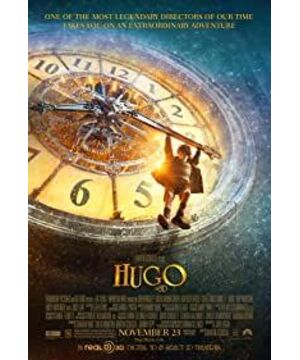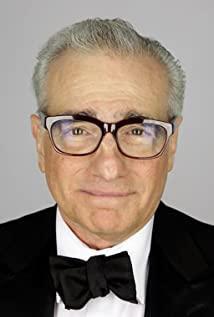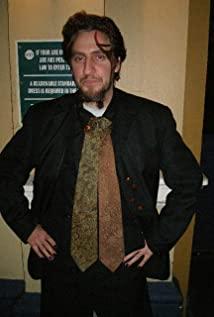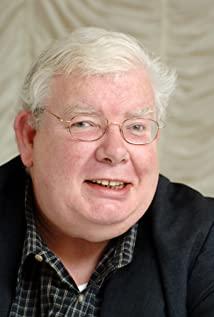If it weren't for the fact that "The Artist" was too strong, I believe that this year's best director Oscar statuette would fall into the hands of old Martin again. Although the performance of "The Secret of Hugo" (2012) at this year's Oscars made old Martin a little disappointed. But from the 11 nominations for the film to the 5 technical awards awarded, the American Academy of Motion Picture Arts and Sciences (AMPAS) can be regarded as affirming the late Martin's enthusiasm for the film from another angle.
If you dig out the core of the tribute to the movie, the basic storyline of "The Secret of Hugo" can be described as sour. But it's the fact that the film sets the old man as Georges Méliès, a master who played a huge role in the development of cinema in the real world, that makes "The Secret of Hugo" special. At the same time, Martin's expert filmmaking skills allow the story to move freely between reality and fiction.In the film, the old Martin allows modern audiences to follow his lens to review Mérieux's many contributions to the development of film technology. Techniques such as storyboard scripts, multiple exposures, manual coloring, model photography, special effects, artificial sets, etc. are all presented to the audience by the film through pictures or dialogue. At the same time, Merieux's dedication to being obsessed with and obsessed with movies, going bankrupt for movies, and being lonely after being forgotten also makes people see the ups and downs of the filmmakers' pursuit of dreams.
It is not difficult to see that Martin, as a filmmaker, made this film about films and filmmakers with reverence. The production of those old movies may seem crude and rudimentary today, but it is the enthusiasm of those masters for the films that makes the films continue to innovate in technology and art, thus affecting the production of later generations. It is conceivable that filmmakers like Old Martin were moved by the works of their predecessors and joined the ranks of dream chasers. Today, the former young man himself has long been regarded as a Hollywood master and is admired by new filmmakers. But he has not forgotten the initial touches left to him by the masterpieces of the film masters. Although the movie has a strong nostalgic flavor, Martin can use 3D technology to perfectly combine the old and new technologies of the movie. Although the children's theme and 3D technology are not the first of the old Martin, they represent two "firsts" of the old Martin. This shows that old Martin, who is nearly seventy years old and has been dealing with movies for more than 40 or 50 years, has undiminished enthusiasm for movies. In this interlacing of the old and the new, the old Martin carefully sketched a picture of not only the past, but also the future of film development.
And the people who have a movie dream are far more than people who are directly engaged in movie shooting, such as Merieux and Martin, but also movie-loving audiences and scholars who study movies. In the play, in addition to Little Hugo/Hugo (Asa Butterfield) and Isabelle/Isabelle (Chlo Grace Moretz), the person who makes old Mériere (Ben Kingsley) regain himself is a crucial character. He was the scholar René Tabard (Michael Stuhlbarg), who was fascinated by Mérieux's films and spent a lot of time and energy collecting his lost works. It was because of his collection that the old Mérieux let go of his heart and faced his past again. Compared to the mere curiosity of the younger Hugo, Taber's love for movies is put into action. As a professor of film history, he was so respectful in front of the lonely Merieux couple. It can be seen that his reverence for the film masters comes from the bottom of his heart. Although he is not a filmmaker directly involved in filmmaking, he has also joined the ranks of film dreamers with his passion for film. His film collection and research have provided future generations with the opportunity and means to understand their forefathers.I believe that scholars who are engaged in film studies like Professor Taber should have no less love for movies than filmmakers like Martin.
Although this character doesn't make many appearances, it still excites me. There are many images of movie fans and scholars in movies from ancient and modern times, but there are very few movie scholars. Perhaps because I am a fellow man, it is easy to resonate with such a character. Although film studies, as a relatively young academic field, is often derided as a "Mickey Mouse discipline" by laymen (even academic staff of some traditional disciplines), this does not affect film studies as an interdisciplinary subject in cultural studies. The role played by it can not stop more and more students from loving this subject. And people like me who engage in film research often spend several years studying a film-related subject for their favorite films, and they also travel half the world to collect relevant information for the film archives. I often get excited about finding a copy of an old film or finding a shred of film-related evidence. Pain and joy in self-indulgence and self-abuse in the eyes of the layman. I can only thank Martin for presenting a wonderful movie for film lovers like me and thank him for letting the audience see the obsession and obsession of all kinds of movie lovers.
View more about Hugo reviews











